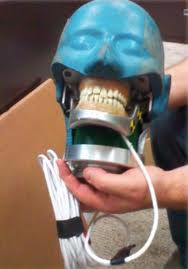This article is written by Truman Lewis for Consumer Affairs.
 Do athletic mouthguards really prevent concussions? The Federal Trade Commission is warning five retailers to be sure they have evidence to back up their claims for the mouthguards sold on their websites.
Do athletic mouthguards really prevent concussions? The Federal Trade Commission is warning five retailers to be sure they have evidence to back up their claims for the mouthguards sold on their websites.
It's a little hard to see how a mouthguard would protect the brain, and in an article in the British Medical Journal, researchers say flatly there's not much evidence it does:
"One of the most commonly held myths in sports medicine is the premise that wearing a mouthguard will prevent concussion," wrote lead author Paul McCrory, a sportsmedicie physician in Australia. "The ability of mouthguards to protect against head and spinal injuries in sport falls into the realm of 'neuromythology' rather than hard science."
“Given all of the news reports in the past few years about concussions, retailers should be vigilant in reviewing claims made for products they are selling for young athletes,” said Jessica Rich, Director of the FTC’s Bureau of Consumer Protection.
Each letter identifies a mouthguard on the retailer’s website for which a concussion protection claim is made. The letter then discusses the FTC’s 2012 case against mouthguard manufacturer Brain-Pad Inc., and recommends that the retailer review its website to ensure that it is not making unsupported concussion protection claims.
This is the third set of warning letters the FTC has sent regarding concussion protection claims. In November 2012, after the order in the Brain-Pad case became final, agency staff sent out warning letters to 18 other manufacturers of sports equipment, advising them of the Brain-Pad settlement and warning them that they might be making deceptive concussion protection claims for their products. Letters to almost a dozen additional manufacturers were subsequently sent out over the next 18 months.
The FTC also testified before a Congressional subcommittee last May, noting that as awareness of the danger of concussions has grown, manufacturers have started making concussion-protection claims for an increasing array of sports-related products.
Truman Lewis former reporter and bureau chief for broadcast outlets and magazines, He has covered presidential campaigns, state politics and stories ranging from organized crime to environmental protection. Read Full Bio
